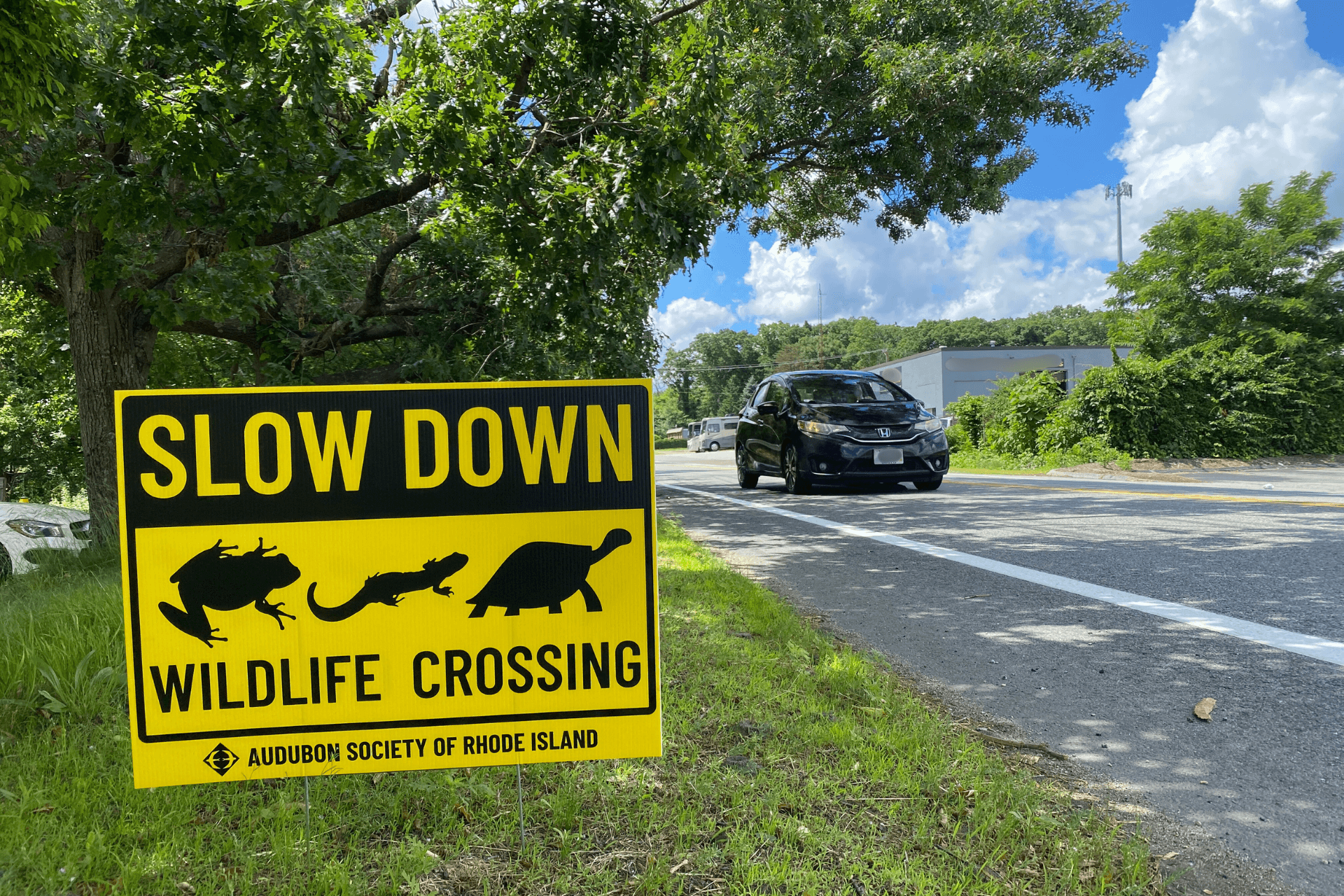
Help Wildlife Cross our Roads Safely
Purchase a yard sign to alert drivers in your neighborhood to turtles and other wildlife that are crossing roads this season!
Audubon is offering yard signs to alert drivers of potential wildlife crossings and asking them to lower their speed. If you live near a pond or wetland, or have noticed wildlife like turtles, frogs, or salamanders crossing roads in your neighborhood, please consider placing a wildlife crossing sign in your yard for the months of May, June, August, and September.
Signs are $10.00 each (plus sales tax), which covers sign production and processing. Additional funds raised will support Audubon's wildlife conservation efforts!
IMPORTANT:
- PICK UP ONLY: Signs may be picked up at Audubon Headquarters (12 Sanderson Rd, Smithfield, RI) or the Nature Center and Aquarium (1401 Hope St, Bristol, RI). We will provide more info upon purchase.
- These signs should be placed on your private property only, or a neighbor's property with explicit permission.
- About the signs: Size is 24"w x 12"h. They are made of weatherproof PVC material and come with a metal h-stake to affix your sign and put in the ground.

















